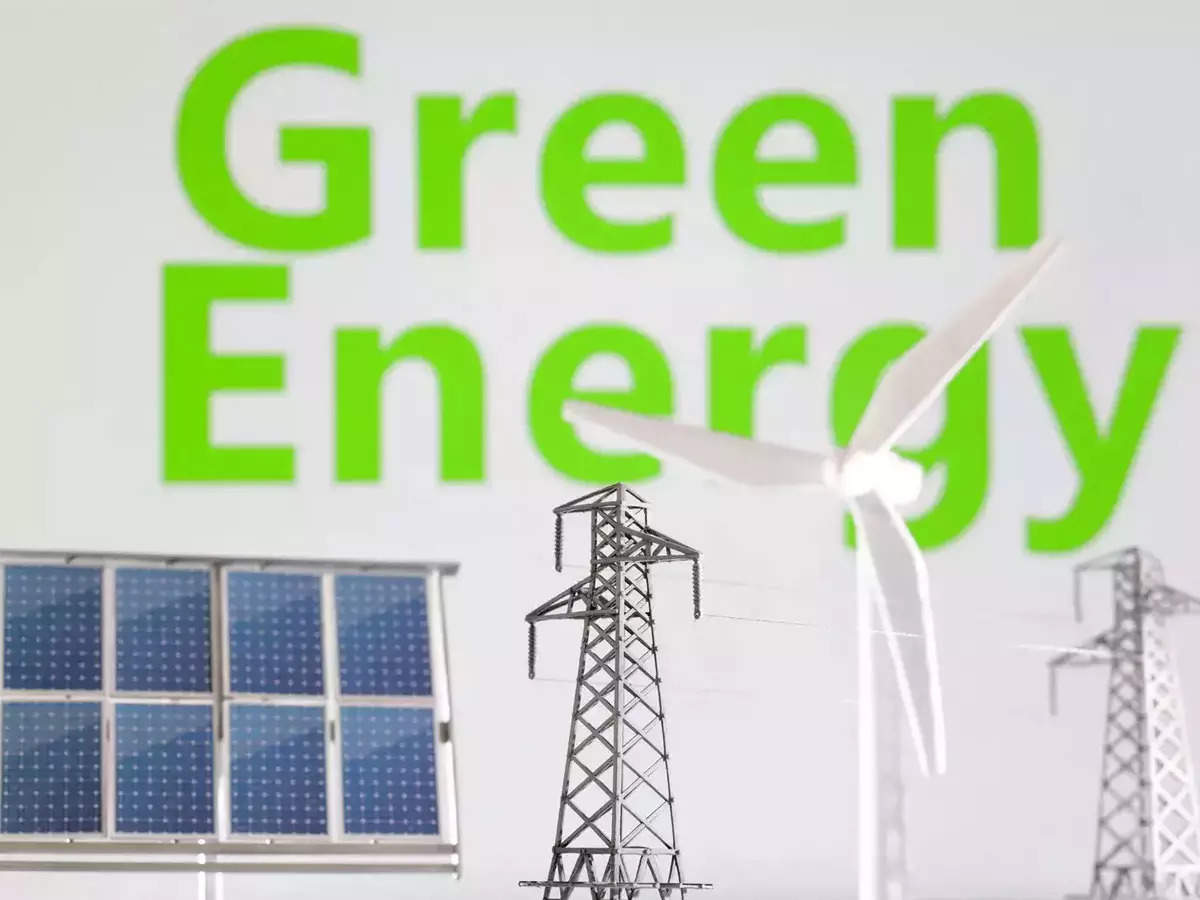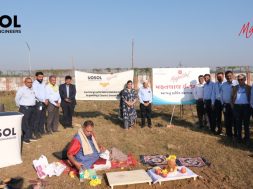
State aims to attract ₹1.98 lakh crore investment, 1.14 L jobs in 10 years with green energy policy – EQ
In Short : The state has unveiled an ambitious green energy policy aiming to attract ₹1.98 lakh crore in investments and generate 1.14 lakh jobs over the next decade. This initiative focuses on boosting renewable energy projects, enhancing sustainability, and fostering economic growth, positioning the state as a leader in the green energy sector while addressing environmental challenges.
In Detail : The Telangana Government is planning to attract ₹1.98 lakh crore investment, create 1.14 lakh jobs and achieve at least one-third (33%) reduction in the State’s carbon intensity (carbon emissions in the process of energy generation) over the next 10 years under the new green energy policy being formulated.
As part of the new policy, the government is aiming for the development of 20,000-megawatt renewable energy generation capacity along with battery storage capacity by 2030. According to sources, the State Government wants to contribute to the global efforts to mitigate the climate change being caused with carbon emissions.
Ensuring energy security for Telangana, providing reliable and affordable power to all sectors, achieving self-sufficiency and sustainability for the power utilities, promoting the development of solar, wind and other hybrid types of Firm and Dispatchable Renewable Energy (FDRE) projects, developing energy storage systems are likely to be the broad objectives of the new policy.
To achieve the goals, the government is planning to create a transparent process for the allocation of resources and procurement of energy through renewable energy sources. Accordingly, the procurement of energy by the distribution companies will be through a transparent competitive bidding process in the case of solar, wind and floating solar generation.
As wind and pumped storage projects are location specific, available government land at potential locations would be allocated to developers at nominal lease of 10% of the market value at the prevailing rate at the time of bidding with a provision for escalation of 5% for every two years. The government would encourage floating solar projects to maximise the usage of reservoirs by allocating water bodies to State and Central PSUs and joint ventures with State and Central PSUs.
In case of Discoms not utilising water bodies, the space would be allocated for third party or private use at one-time lease. The lease rate would be ₹1 lakh per acre per annum for a period of 25 years from the date of commercial operation of the project. To promote local employment, women SHGs would be encouraged to set up distributed solar plants of 500 KW to 2 MW.
In case of pumped storage projects, the nodal agency to be notified would take up the task of identifying the potential pumped storage sites and undertake techno commercial feasibility reports (TCFR). The State would have the first right of refusal for up to 80% of the project capacity at a tariff to be determined by the State Electricity Regulatory Commission. In case of co-located captive plants, the first right of refusal would be up to 20% of the project capacity at a tariff determined by the State ERC.











